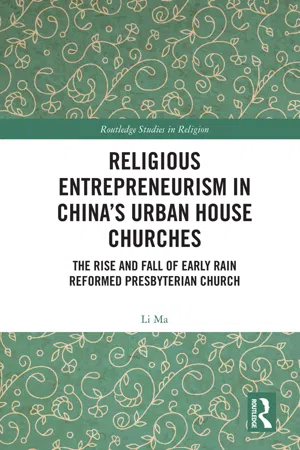I remember clearly that Yi Wang specifically told me: ‘Feixiong, you are in politics. You are mixed in with the democratic movement, whereas I am defending freedom of religion.’ … The scene that these four Christians embracing themselves to pray to God and then deprived me of my right to attend a normal diplomatic meeting will be forever etched in my mind.3
It was not until two weeks later that Yi Wang and Jie Yu responded to the incident after an increasing number of liberals in China were charging them with an act of betrayal. Both of them published articles online, defending what they had done from a Christian standpoint. In his letter, Yi Wang explained that although house churches also seek political justice, they do need to submit to political authorities. “We cannot equate these pursuits with Guo’s version of democratic rights.”6 Yi Wang also stated that he was disturbed by Guo’s “certain nationalistic democratic ideals and a Sun Yat-sen complex.”7 Wang ended with enthusiastic praise for God’s providence in the event:
It seems to me what really happened was the marvelous deeds of God. We three Christians who entered the White House knew nothing and had made no plans beforehand. Was it plotted in advance? Will China’s freedom and democracy rely on trickery? Will freedom of religion rely on strategizing? As I see it, it relies on faith in God’s love and justice.8
Jie Yu also wrote and explained that most White House staff present that day were devout Christians, and the themes of their discussion included house churches in China and some personal testimonies. Yu said, “Toward the end of the meeting, President Bush led us in prayer. Apparently, such an occasion was not suitable for non-Christians.”9 Tragically, soon after Guo returned to China, he was arrested, sentenced to five years in jail, and severely tortured. Consequently, this incident in 2006 tore asunder the emerging liberal movement inside China.10
In China, liberalism (自由主义) has been a trend since around the 1910s, championing individual liberty, limited government and free market enterprises. Since the 1980s, it re-emerged as an intellectual preoccupation among educated Chinese, with emphases on rule of law and laissez-faire economic policies. Two academic disciplines, law and economics, became expanding areas of scholarship.
Back in Chengdu, following this controversy, regular members of the Straw Hall Reading Society also took sides. Many hardcore fans of Yi Wang turned against him and posted combative articles online. As a former member of the society, Su (pseudonym, female, 33) comments, “Wang had no right to decide who else should be invited or not [to meet with Bush]. It was simply not his choice to make.”11 Within a month, the Independent Chinese Pen Center (ICPC), an organization for exiled Chinese writers based in the United States, received an open petition on June 26, 2006 to depose Yi Wang and Jie Yu from their ICPC positions.12 As the petition states, “personal faith has become their sharp weapon for a religious inquisition, and they used it to exclude anyone who they deemed as dissenters.” A similarly dividing debate took place in many house churches.
This controversy involving the tragic fate of Feixiong Guo has continued since then, for Guo became one of the most persecuted activists in China. He has been repeatedly arrested, released and sentenced for a total of 11 years. It was not until 2017 that event organizer Bob Fu acknowledged on his Twitter account that the arrangement made that year was a mistake.13 This short statement was followed by a flurry of requests for the “total truth.” Activists such as Yunchao Wen recalls that he once confronted Yi Wang in 2009 when Wang was giving a public speech in Guangzhou. Yi Wang told the audience that they ought to speak out the whole truth before God. As Wen recalls, he once asked Yi Wang if he spoke out the whole truth in the Guo-exclusion incident, and Wang answered that one has to differentiate public truth from private truth and that he spoke the public truth.14 Wen said that this explanation made no sense to him, but it was the end of their conversation.
At the time, Jie Yu, a graduate of Beijing University, enjoyed more fame than Yi Wang in China. As early as 1999, Yu’s first book, Fire and Ice, received sensational reviews. In 2010, after writing a series of critical biographies of a series of Chinese leaders, Yu was arrested and tortured. After another year of house arrest, Yu emigrated to seek asylum in the United States. Inside China, Yi Wang began to enjoy more prestige.
